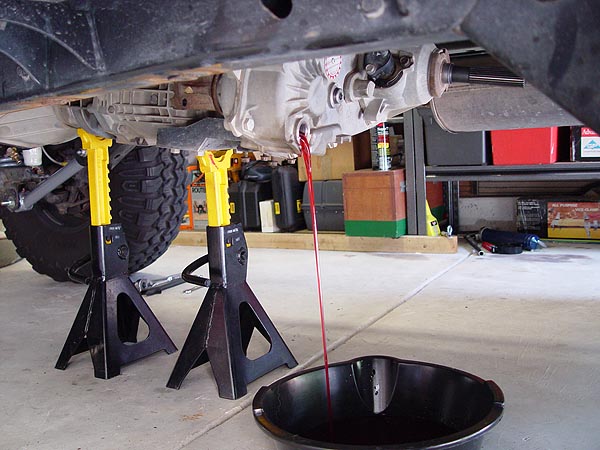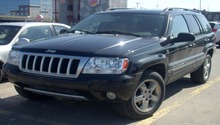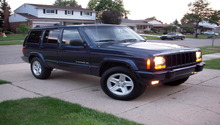Jeep Cherokee 1984-2001: General Information and Recommended Maintenance Schedule
Every vehicle requires general maintenance, and the Jeep Cherokee is no different. Read on to learn what you'll need to do to maintain your Jeep for years to come.
This article applies to the Jeep Cherokee XJ (1984-2001).
With some general maintenance and a persistent eye for trouble when it comes to your major systems, you can maintain your Jeep Cherokee for years to come. The more you monitor what's happening underneath the hood of your Jeep, and act in a timely manner whenever something does go awry, the greater your chances of keeping this durable vehicle on the road and out of an automotive repair shop. Let's take a look as the general maintenance you'll need to perform on your Jeep Cherokee and at what intervals.
Basic Maintenance Tips
Your basic maintenance will include changing out your spark plugs, replacing your old rotor and installing a new distributor cap, as well as replacing your air filter - all of which should be done every 30,000 miles. If you purchased your Jeep from a previous owner, it's highly recommended that you also service the transfer case at this time. Do so by draining and replacing your transfer case fluid. Additional checks include:
- Inspect battery and alternator.
- Inspect exhaust.
- Check all fluids (they should be clean and topped up).
- Inspect throttle body for failure.
Preventative Maintenance
For your Jeep Cherokee to surpass the 300,000-mile mark, which is highly possible, you'll need to do a little preventative maintenance. This starts with knowing exactly what's in your owner's manual and what's included in your regular maintenance schedule. Added to this, you'll need to keep an eye on your transmission, having it serviced every 30,000 miles, as needed: keeping all your wires and major systems and components lubricated or "greased" and in good working order; maintaining your radiator, which includes changing the water pump, thermostat and hoses, as well as replacing the fluid. Overheating can be a major problem with the Jeep, so maintain your radiator and replace any needed parts in a timely manner; it's also recommended that you completely flush your radiator system every 40,000 to 60,000 miles. Follow the above preventative maintenance tips and your Jeep should last you for miles and miles to come!

Major Fluids
- Flush your cooling system regularly using a 50/50 coolant mix. There is no need to dilute the coolant mixture with water. Use the Volvo coolant cap, if you have a closed cooling system, and a 16psi radiator cap, if you have an open cooling system.
- Change your differential fluid every few thousand miles using Mobil 1 Synthetic Gear Lubricant LS 75W-90.
- Replace your transfer case fluid as it becomes dirty using a high quality transmission fluid.
- Add new engine oil every 3,000 miles.

Common Questions
Do I need super fancy engine oil for my Jeep Cherokee?
The truth is you do not need fancy engine oil for your Jeep Cherokee. Shell Rotella is the go-to brand for the Jeep Cherokee, and it comes highly recommended by both Jeep owners and mechanics. It contains a Zinc additive that will benefit your engine.
Are fancy spark plugs worth their expensive price tag?
For the Jeep Cherokee, it's not necessary to shell out a lot of money on fancy spark plugs. Stick to the NGK brand and your engine will deliver a level of high performance that will make you satisfied.
Which engine additive should I use on my Jeep Cherokee?
Marvey Mystery Oil (MMO) and Sea Form are the go-to brands for the Jeep Cherokee. Both brands are effective in cleaning your engine, and can be purchased through a local auto parts store for less than the cost of two lattes. Follow the manufacturer's instructions when using these or other engine additive products.
How often should I replace my serpentine belt?
At least every 60,000 miles.
Related Discussion
- Additional Preventative Maintenance Tips - CherokeeForums.com






